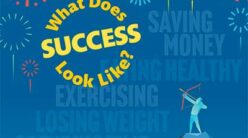
Your brain—every brain—is a work in progress. It is ‘plastic,’” says neuroscientist Michael Merzenich. “From the day we’re born to the day we die, it continuously revises and remodels, improving or slowly declining, as a function of how we use it.” It’s exciting that we can strengthen and enhance our mental power by using our brains well.
Let’s examine a few brain-enhancing techniques that may surprise you:
Sing your heart out.
Do you sing in the car, in the shower, or anywhere else you can? The evidence is clear: Making a joyful noise is powerful. Singing delights the brain in complex ways, similar to playing an instrument. (What a relief after those failed piano lessons.)
A study from Helsinki found that regularly singing with a choir stimulates brain plasticity in the frontal regions, improves the brain’s structural connectivity, and positively affects the fornix, which supports memory. Our brains like memorizing melodies and lyrics, processing diverse sensory stimuli, and creating linguistic output.
Be gentle with yourself.
This practice is quick and easy: Sit in a quiet spot, lay one hand over your heart and the other on your belly, close your eyes, relax, and think compassionate thoughts. Remember a recent cause of stress or a mistake you made, and inwardly say something kind to yourself, like, “Everyone messes up; it’s OK.”
I know, doing this feels silly. But only the first time because then, like me, you’ll probably realize it actually works. Practicing “compassionate touch” for only 20 seconds can result in “rest-and-digest” responses from the parasympathetic nervous system (the opposite of fight or flight), lowered levels of the stress hormone cortisol, and increases in the feel-good hormone oxytocin.
Enhance your sense of smell.
It’s good for our brains to do crossword puzzles, but honestly, I struggle mightily with those. But indulging in lovely scents . . . now that’s appealing. Researchers at UC Irvine found that older adults who diffused essential oils for a few hours each night improved cognitive test scores by an impressive 226 percent. The oils changed nightly, including rose, orange, eucalyptus, lemon, peppermint, rosemary, and lavender.
In 2022, the NIH reported that scents affect our thinking. This is a newer concept in neuroscience, so there’s a lot we don’t yet know. Smell and memory have strong associations. The olfactory bulb in the front of the brain processes the odors we perceive. That information goes straight to the limbic system (the amygdala and hippocampus), the brain regions related to emotion and memory.
Brain scans done on master wine tasters showed that their brains are more developed in this area. Conversely, people who are aging, especially those with memory problems and depression, tend to shrink in this area of the brain. Like a sommelier, we can develop our sense of smell and thus give that brain region a fragranced workout.
A professor of olfactory science says that you don’t have to be fancy, just mindful. Notice the scents you encounter throughout the day, and pay attention to them, whether a freshly sharpened pencil, pungent cooking spices, or sweet springtime flowers.
Exercise regularly.
A neuro nurse practitioner said her number one recommendation is to exercise several times weekly for 30 to 60 minutes each session. Increased blood flow to the brain generally results in better mental function and fewer memory problems. Vigorous activities—house cleaning, gardening, and cooking healthy meals—is also healthful.
Learn something new.
Your brain loves innovative information. Cruise the shelves at the library and see which new field of study pops out. Go to a craft store or Etsy’s website and look for “crafting kits” to make something, such as a glass mosaic, wood carving, or beeswax candles.
Stay social.
Keeping in touch and having social time benefits your brain and health on many levels. Invite friends and family around, get involved in a club, church, or community volunteer opportunity.
Monitor your hearing.
The World Health Organization says 50 percent of people aged 12–35 are at risk for hearing loss because of repeated loud sounds, from lawn mowing to sports games. Exposure to some chemicals, such as toluene found in paints, paint thinners, nail polish, perfumes, and medicines, can also cause damage to the brain and, strangely, usher in hearing loss.
A study by Johns Hopkins found that people with moderate to severe hearing loss are 60 percent more likely to slip into dementia than people who engage their brains by using hearing aids. If people are no longer able to hear and follow conversations in a social setting, they experience a faster loss of memory and thinking ability. This can also lead to loneliness and social isolation. In addition to impacts on cognition, hearing loss confuses the brain regarding balance and increases the risk of falls.
Feed your brain healthy food.
Most brain researchers agree that a diet rich in vegetables, fruits, and whole grains is great for the brain and body. If you’re eating lots of processed food and sugar, you’re not using your noggin.
Lighten up.
When stressed, cortisol can build up in the brain, causing muddled thinking. In the long term, excessive cortisol destroys brain cells. Experts suggest making positive changes, exercising, and setting aside quiet time daily to help lower stress.
Get enough quality sleep.
So many Americans are just plain tired, which negatively affects brain function. Most adults need 7 or 8 hours of sleep, and children need more. Sadly, some neurologists insist that naps don’t compensate for sleep lost at night.
Remember, no vice is nice.
Alcohol and smoking sabotage brain health. If you’re wondering how much alcohol is too much, in 2023, the World Health Organization stated that there is no safe level of alcohol consumption.
Drink enough water.
Hydration helps concentration (that’s why I’m sipping water as I type), improves short-term memory, clarity of thought, and learning, and can also improve mood and lessen depression. New information from Harvard University says that water intake varies from person to person, but four to six cups a day works for most healthy people.
Manage blood sugar.
Remember that Alzheimer’s is called type 3 diabetes. Insulin resistance in the brain leads to cognitive decline, memory problems, and other symptoms that most people can avoid with positive, consistent health habits.
Make like the military.
“Protect your head” is a phrase from the Department of Defense that military service people often hear. Civilians can do the same. If there’s a helmet that goes along with the activity you’re doing, then, by all means, use it.
Michele Deppe is a freelance writer based in South Carolina.






